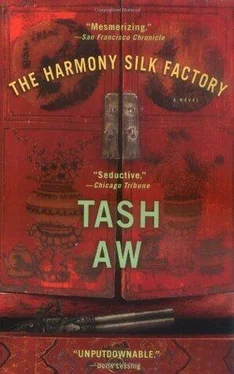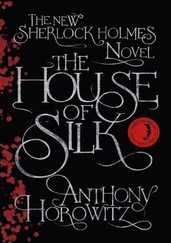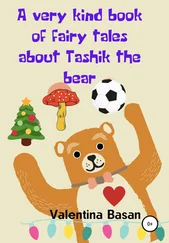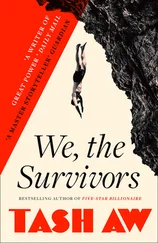He was sitting on a tree stump watching me as I ran back up the path. “You took a very long time,” he said. “I was worried. I nearly went out searching for you.”
“Sorry,” I coughed. “I got slightly lost on the way back. I’ll exchange my agility for your sense of direction, I think.”
“Did you see anything?”
“No,” I said. “No water. I searched, though — that was why I was so long, I remembered what you said. But no, I didn’t find water.”
“That’s strange,” he said, as we began to head back to our tiny spartan camp. “I can feel it close by. Just instinct, that’s all.”
“Yes, well, I looked. But I did find a ruin. I think it may be a temple.”
He raised an eyebrow, a trait of mine he had begun to imitate. “A ruin?”
“You shall see for yourself soon enough.”
We wandered slowly through the trees, pointing out birds — little black-and-white hornbills and iridescent flycatchers — and chatting about books he wanted to read. “I wish I could read Dickens,” he said, “as Snow does.”
“Why can’t you?”
“I tried, it’s too difficult.”
“Someday soon I’m sure you’ll learn to appreciate it.”
He smiled and shook his head. He was looking very tired again. “I am resigned to certain things.”
As we approached the camp I reached to touch him on his shoulder. “I meant to thank you. The storm. I mean, I was foolish, I know. So. Thank you for—”
He shrugged. “For what? Look how we ended up.” His attempt at a smile was not convincing.
“We’re here, aren’t we? And alive, too, I should add.”
“I suppose,” he said, as we walked into the camp. The broken shade of the casuarinas and sea almonds cast snakeskin patterns on his face; his voice had become papery and dry, like the dead leaves that lay scattered on the sandy soil.
THIS ISLAND OF ABUNDANCE would erase the events of the past days, and we would start anew. That is what I believed, and for a while I was proved right.
“Isn’t it strange,” I said to Snow, “how one can forget something as awful as that storm we encountered. It’s only been a few days and already the memory of it is devoid of terror. I can recall the events, of course, but I can’t feel anything. Funny, isn’t it, how the human mind works?”
“We humans have a remarkable capacity to disguise emotions,” she replied, drawing lazily in her notebook. “We suppress feelings, we force ourselves to forget things until, finally, we truly believe those things had never existed.” We were sitting in the confines of our camp after breakfast, sheltering from the sun. I reclined on the sand, propping myself up on my elbows as I chatted to her.
“Such cynicism in one so pure,” I said. “Do you really think so?”
“Of course. It’s how we survive, isn’t it?”
“You’re right, of course. I mean, let’s take the storm as an example. I remember being washed overboard; I can remember, clearly, being battered by the waves, swallowing gallons of water — I can still taste the salt at the back of my throat, but can I recall the terror? No, not really. Similarly, I can remember surfacing once the squall had passed, and I can remember seeing you, but as for how I felt: nothing! The elation of being alive, intense as it was then, no longer exists. I’ve simply forgotten. Of course I remember carrying you back to the boat, but I’m afraid I draw a blank as far as emotions are concerned.”
She closed her book and said, “I’ve forgotten too.”
“Quite.”
“What about death?” she said.
“You mean would I forget a person once he’s passed on?”
“Exactly. Their face — their image — would stay with you, of course. You’d remember what they looked like. The details may become vague, but you’d still remember. Just like a photograph. In your mind’s eye, you’d be able to re-create all their habits — the way they slept, how they ate: everything. But would you remember how you felt about them? And how they felt about you?”
I returned her gaze and tried not to blink. “No. I don’t think so.”
“Nor would I,” she said. “Death, I believe, erases everything. It erases all traces of the life that once existed, completely and forever. Of course we help it in its task — we’re the ones who do the forgetting.”
“I couldn’t argue with you.”
Her notebook rested on her knee. She tapped it with her pen as she gazed into the distance.
“You write every day, don’t you?” I said. “You’re religious about it.”
“Just aimless scribbles, nothing much. A woman’s frivolity.” She laughed. Although she sat casually on the sand, her head and neck were held with such poise that I felt round-shouldered and shabby, a dirty schoolboy dressed for games. “Besides,” she added, “it passes the time.” With that, she picked up her pen and opened her book.
I was almost out of earshot when I heard her call my name. “I meant to ask: How’s Johnny?”
“Fine,” I said. “He’s fine.”
I walked the length of the beach, heading towards a rocky head-land in the distance. By the time I sat down on the barnacle-clad rocks I already knew that I would steal her diary.
ON MY WAY BACK from my wondrous ruin I ran into Johnny and Honey. “Hello,” said Johnny. “I’ve been looking for you. Where have you been?” His voice was flat and bare of inflection, and his question hardly sounded like one.
“I’ve been at the ruin,” I said. “You?”
“Just chatting,” said Honey. “We were both out searching for some food for dinner this evening — I’m tired of tinned stew — and we literally bumped into each other. All the paths in this place seem to intersect a dozen times. I was just saying to Johnny that I’m sure they all lead to the same place. You agreed, didn’t you, Johnny?”
“Yes.”
“I’d never have thought of you as a hunter-gatherer, Honey,” I said. “What have you found?”
“Nothing yet, but I’m sure something will turn up. Johnny was going to teach me how to set snares for birds.”
“You seem very bloodthirsty, Honey,” I said. “Won’t fish do for dinner?”
“Fish and rice may do nicely for those of you who go native,” he said, “but I have a craving for a decent cut of meat. Anyway, I must be off. Hunting and gathering, you know.” He crashed through the narrow path heading back to the camp.
“Come on,” I said to Johnny. “I want to show you something. At the ruin.”
“Some other time, maybe,” he said. “I’m a bit tired.”
“You weren’t too tired to go off a-hunting with Frederick Honey.”
He remained silent. He blinked several times but his eyes stared vacantly as if incapable of focusing.
“Come on,” I urged, taking him by his arm. “A gentle walk will do you no harm. There’s something I’d like you to see. No one else knows about it yet — I want to keep it a secret, but I want you to see it.”
He nodded and tried to smile, but it seemed as if the faint frown that had settled on his face held his features in too tight a grip; his brow remained locked, his eyes were dead and dark, his mouth drawn thinly as if smirking. No laugh could break through that cladding; fatigue had imprinted itself on his face. He trailed after me without saying a word until we reached the ruin.
“I don’t see what’s so interesting about this place,” he said.
“I seem to be the only one on this island to appreciate the beauty of abandoned buildings. A ruin resonates with the lives of the people who once lived there. Just shut up and follow me, will you?”
“But it’s just a pile of rocks. Why do you spend so much time here?” he said as I scrambled down a bank to a clearing on the edge of the forest behind the ruin. He remained standing above me, hands obstinately on hips.
Читать дальше
Конец ознакомительного отрывка
Купить книгу












